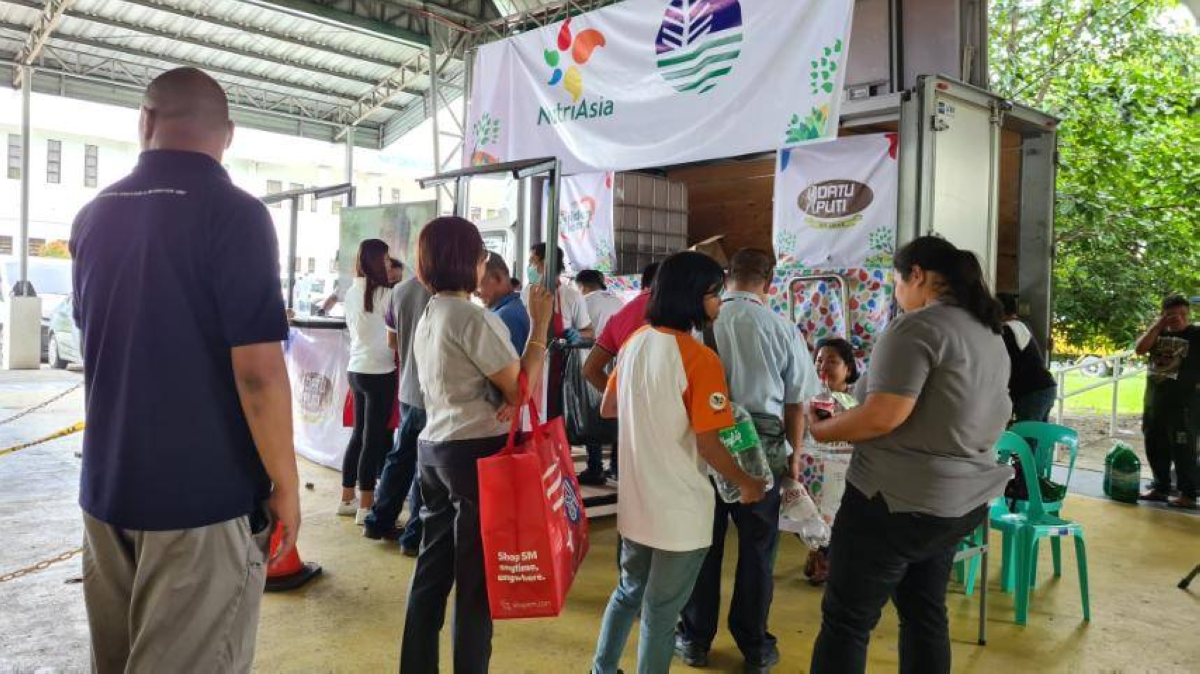Before the advent of single use plastics and most especially plastic sachets, homemakers were already used to buying their daily food needs from the neighborhood sari-sari store and tiangge, and brought along used glass bottles for their cooking oil and condiments, and bayongs for their meat, fish and vegetable purchases.
As the late National Artist Nick Joaquin coined it, the Philippines has a Tingi Culture, where most people buy and trade in minuscule amounts—one stick of cigarette, one sachet of shampoo, one piece of egg, and the like.
“When we had a sari-sari store long time ago, I remember people bringing their soft drink bottle to buy kerosene, no plastic was used during those days,” recalls Mel Francisco C. Cucueco.
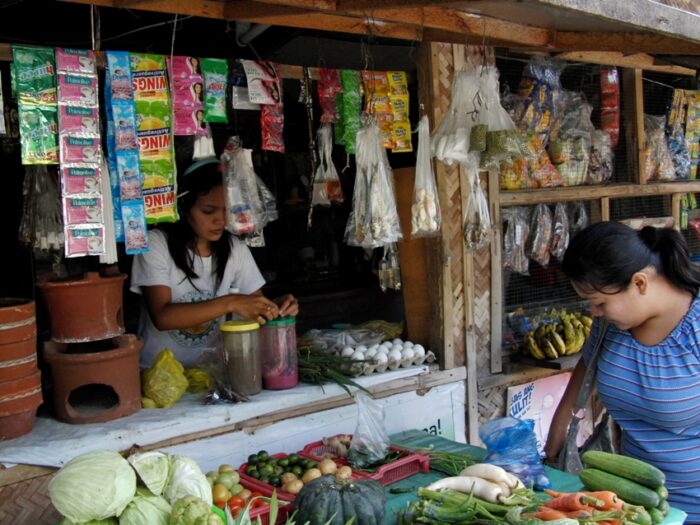
This is usually done in the neighborhood sari-sari stores, though it has also become a trend in the corporate dimension where products from such as shampoo, instant coffee, and even cosmetic products are sold in sachets, carefully catered for the consumer behavior of having a tingi culture.(Veneracion, C. , 2013)
This mentality is attributed to the poverty prevalent in the Philippines where many lack the financial capacity to buy in bigger amounts even if it’s cheaper, preferring to buy things as needed, an ironic twist to the Japanese concept of Just-in-Time, where production inputs are planned to provide just the exact quantities to be purchased or manufactured at the right time without waste.
This Tingi Culture has also brought upon an environmental problem—plastic pollution. Most of these products catered to the tingi market are plastics—sachets, plastic bags, and the like. The average Filipino uses 591 pieces of sachets, 174 shopping bags, and 163 plastic labo bags, yearly.
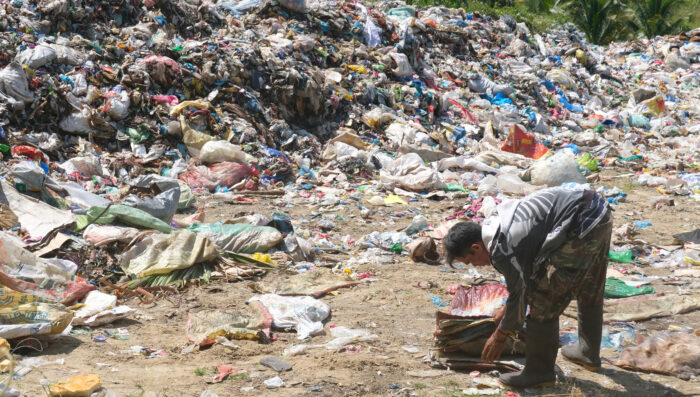
Every day, almost 57 million shopping bags are used throughout the Philippines, or roughly 20.6 billion pieces a year.Up to this day, the tingi culture still prevails, especially in the provinces. And despite the banning of plastics in some cities in the Philippines, there is still a long way to go in curbing it. (GAIA, 2019)
Single-use plastics are a growing concern in the Philippines, but it is the sachets—small, sealed packaging—that are particularly alarming, notes the Global Alliance for Incinerator Alternatives (GAIA).
Comprising an estimated 52% of the residual plastic waste stream, sachets have been accumulating in the environment, where they defile the natural landscape, choke waterways, harm wildlife, and threaten livelihoods like tourism and fisheries. Filipinos use a staggering amount—around 164 million per day.
Sachets are widely perceived as affordable, convenient, and indispensable, but only because their true costs are externalized, and unaccounted for.
Thus, it may take a while before food products which Filipino homemakers now buy from groceries and supermarts can be bought from their neighborhood sari-sari stores with their usual used glass bottles and bayongs.
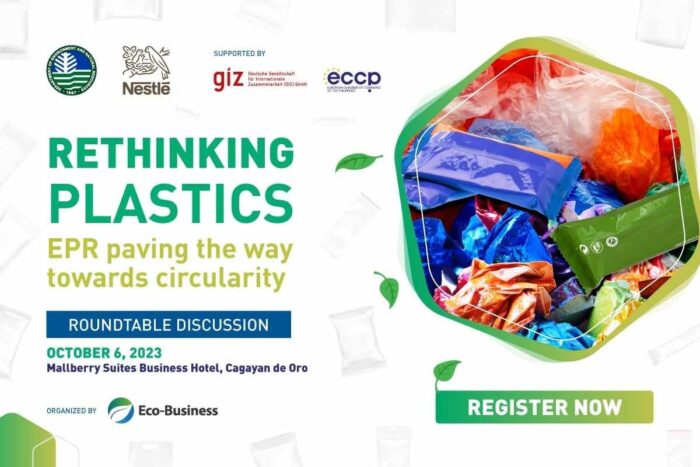
This was clarified by an executive from one of the Philippines’ largest food companies during the recent Cagayan de Oro leg of the Department of Environment and Natural Resources and Nestle Philippines Extended Producer Responsibility (EPR) education and registration drive dubbed “Rethinking Plastics: EPR Paving the Way Towards Circularity” held October 6 at the Mallberry Suites Business Hotel, Cagayan de Oro City.
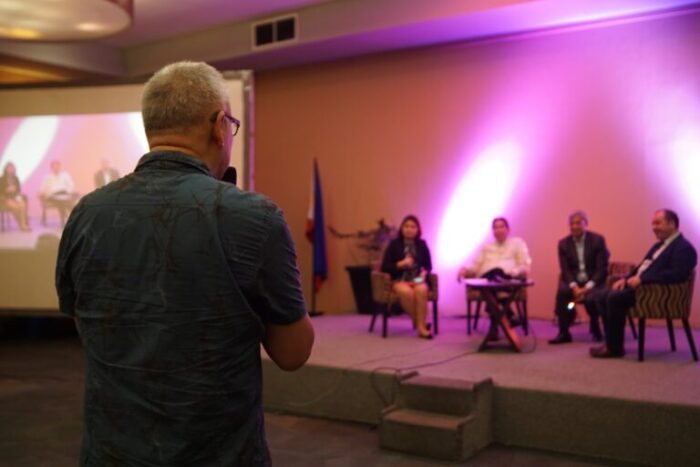
Asked about the feasibility of having their food products dispensed from refilling stations in retail establishments, Jose Uy III, SVP and Head of Corporate Affairs of Nestlé Philippines, replied that it may still be some time before this becomes possible.
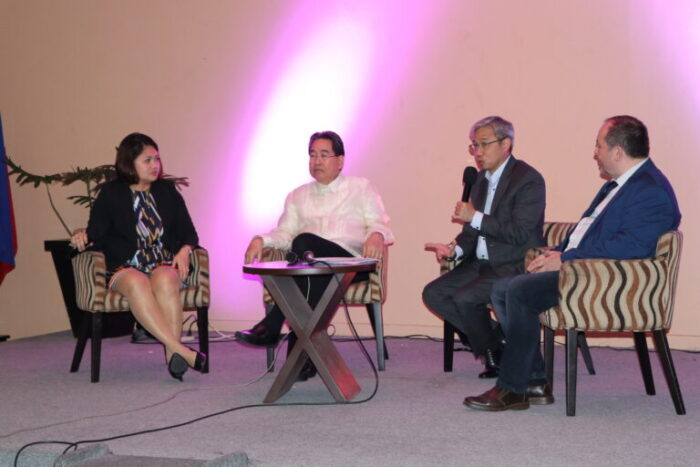
“The variance in temperature present in retail outlets such as sari-sari stores encourages the proliferation of bacteria. And the management of these refilling stations with the many other things their owners have to attend to, is a constant challenge to the safety and integrity of such refilling stations,” Uy stressed.
“At this point in time we do not encourage it, but with respect to the health and beauty, detergent industries baka iyon puede pa kasi less sensitive,” he noted.
All Things Hair Refillery
In 2019, Unilever launched All Things Hair Refillery—a refilling station where people could reuse empty shampoo and conditioner bottles and fill them up at their stations at Trinoma, Glorietta 3, and Alabang Town Center. Consumers were allowed purchase brands like Dove, Cream Silk, Sunsilk, and TRESemmé by the gram from 46 to 58 centavos.
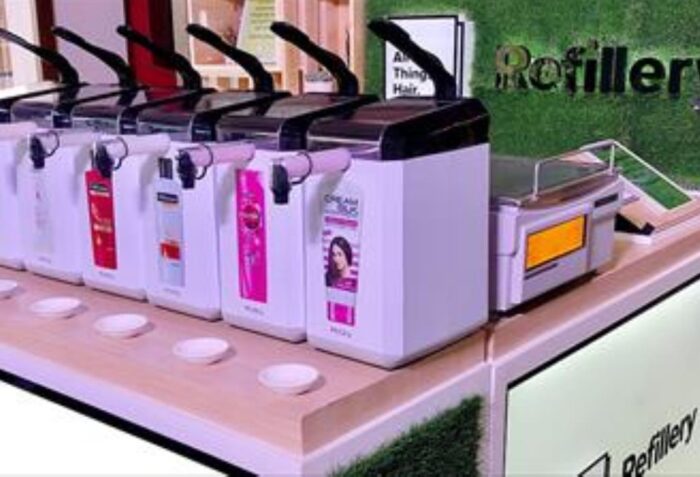
Customers were even able to secure discounts for their preferred shampoo or conditioner. They only had to bring their own empty bottle, and simply pay for the weight of the product restocked. In case a matching bottle was not on hand, a 100% recyclable bottle was available in exchange for non-matching bottles provided these were clean.
“This is just the beginning,”said Dorothy Dee-Ching, Unilever Philippines’ Vice President for Beauty and Personal Care. “With the All Things Hair Refillery, you can bring your empty shampoo or conditioner bottles and refill them with our best-selling haircare brands. We hope to be able to roll out the Refillery in more areas in the Philippines, as well as extend it to our other brands.”
Nestle PH Initiatives
“But for food we have to find alternative materials for packaging to ensure that safety will come first. We need to nurture our countrymen and if the products are contaminated, they’re very dangerous,” Uy pointed out.
Although Nestle has started piloting paper packaging, Uy said there are still issues with paper packaging which need to be safely addressed, such as its absorption of toxic insect and animal pest wastes.
Secondary plastic polybags in Nestle sachets have been eliminated to reduce their plastic footprint. Products transported in pallets are glued and eliminated the shrink wrap previously used. Uy said these are just initial small steps since the company cannot be expected to comply right away because it is a very difficult challenge.
BYOB by Nutri-Asia
Nevertheless, three years ago another food company already launched their refilling stations in Metro Manila.
NutriAsia, the country’s top producer of condiments and sauces, launched a pop-up store at The Mind Museum in Bonifacio Global City (BGC) in August 2020 dubbed Bring Your Own Bottle (BYOB) that remained open until September 12. The store encouraged visitors to bring their own clean plastic or glass bottles to the pop-up store to get a refill of condiments, sauces and cooking oils at discounted prices.
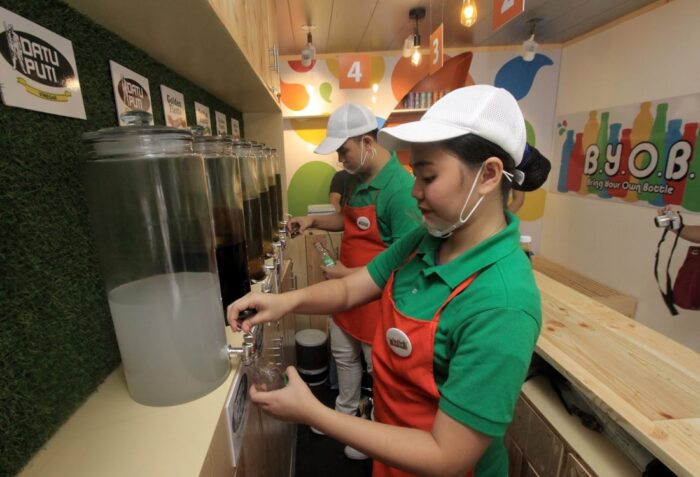
Products offered at the refilling station included Datu Puti soy sauce, Datu Puti vinegar, UFC Banana Catsup, Golden Fiesta Palm Oil, Golden Fiesta Soya Oil, Golden Fiesta Canola Oil and Golden Fiesta Corn Oil. These items were sold 5-15% cheaper than their suggested retail prices. The store also gave a 40% discount to buyers of locally-blended juice drinks.
Most recently, the firm reaffirmed its support for Refill Revolution, a DENR EMB 3 project that aims to help reduce Filipinos’ single-use plastics consumption.
At Refill Revolution stations, residents brought recycled single-use plastic bottles and refilled it with their choice of condiments and sauces at discounted prices.
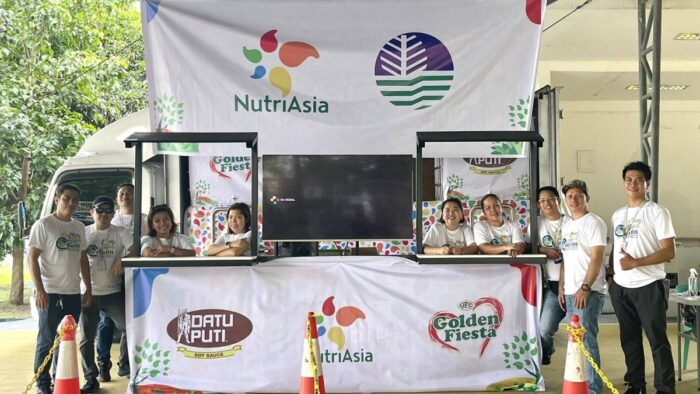
The DENR recently partnered with the San Fernando local government to set up a refilling station at the city’s covered court. Employees from the NutriAsia Marilao plant also joined in bringing batches of its favorite brands such as Datu Puti vinegar and soy sauce and Golden Fiesta cooking oil for close to 1,000 participants.
“Being part of Refill Revolution allowed us to enhance the value we give our customers. We take immense pride in this opportunity to help Filipinos learn more about sustainability practices that they can use at home,” said James Lim, NutriAsia senior group category head of Corporate Marketing and Communications.
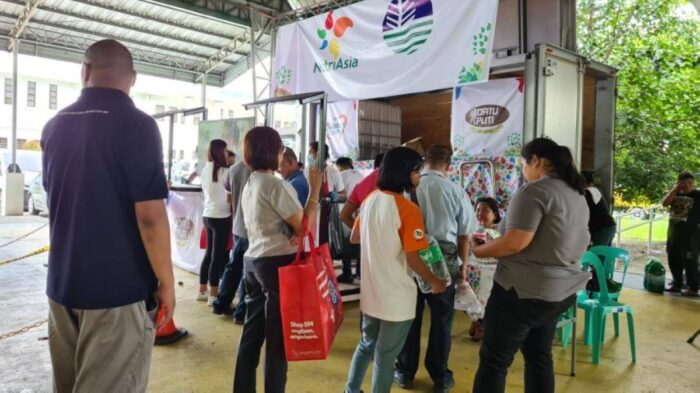
NutriAsia’s active support of Refill Revolution is deeply rooted in its company values of malasakit and bayanihan that encourage employees to do their part in caring for the environment and working together to help promote sustainable lifestyle practices.
Having first joined in 2018, NutriAsia recognizes the responsibilities it has as a one of the country’s leading brands. The company believes that local initiatives like Refill Revolution can go a long way towards creating real change that starts with teaching the public about the benefits of living sustainably, learning how to properly reuse, reduce, and recycle, and be more responsible in their consumption habits.
Lim adds, “As a proud Filipino company with brands and products part of every Pinoy’s hapag kainan, NutriAsia aims to empower consumers and help build zero-waste communities in their own ways. It is our duty to give back and simple acts such as reusing our single-plastic bottles can collectively contribute to the government’s efforts towards saving the planet from climate change, habitat destruction, and declining biodiversity.”
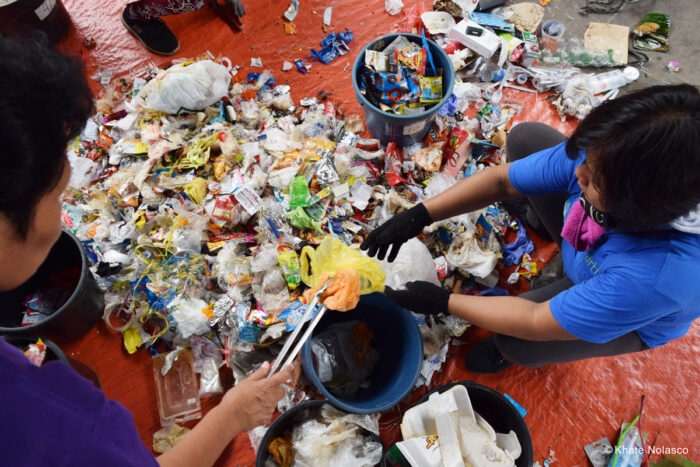
The Philippines throws away 60 billion sachets every year, the Global Alliance for Incinerator Alternatives (GAIA) estimates based on its five-year waste audit. These wastes remain in our environment for thousands of years, polluting our lands, seas, and air.
A total of 48 million shopping bags were used per day, adding up to more than 17.5 billion a year, GAIA said.
-30-
